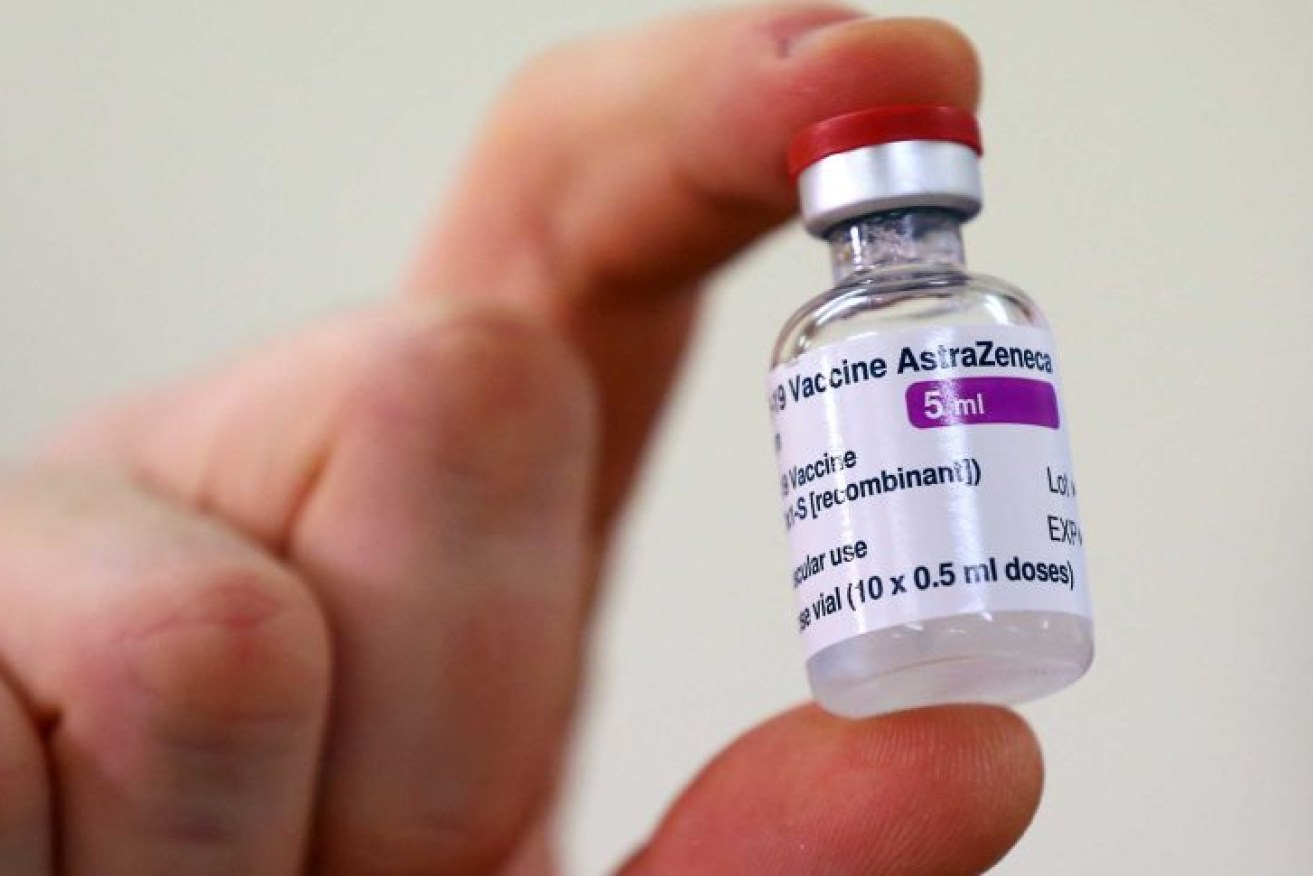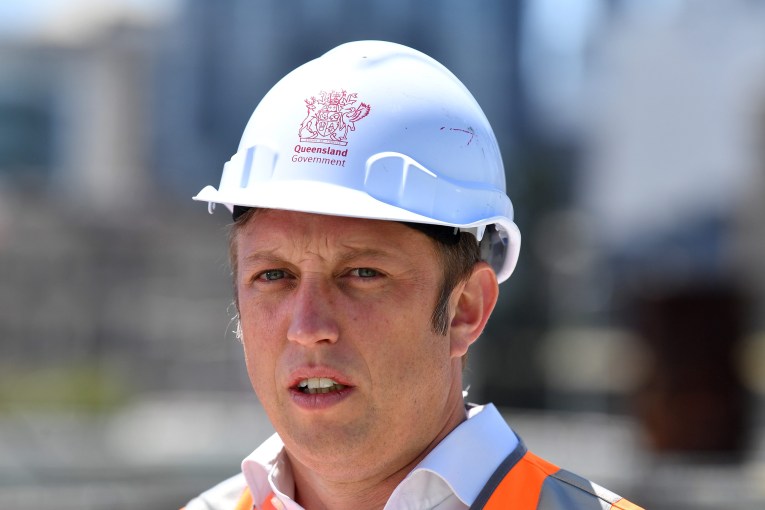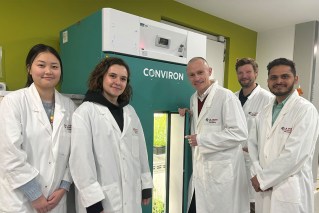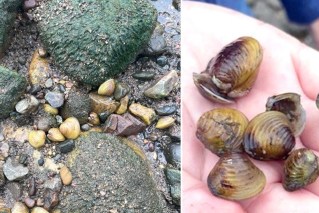Australians ‘can still have faith’ in COVID-19 vaccines despite virulent new strains
As Victoria goes into a snap five-day lockdown, desperate to prevent the spread of a highly contagious strain of coronavirus which originated overseas, health experts say Australians can still have faith in the nation’s vaccine strategy.

Prime Minister Scott Morrison says vaccine rollouts to the disability sector must step up. (Photo: Reuters: Gareth Fuller)
The B.1.1.7 variant was first detected in the UK and has been found in 80 countries (including Denmark, Israel and the USA). It may be 36 to 71 per cent more transmissible than the original virus.
It’s a problem urgently facing health authorities in Victoria. At least six of the 13 cases connected to the Holiday Inn cluster at Melbourne Airport have been confirmed as being the UK variant, with another five under investigation.
Victoria’s Chief Health Officer Brett Sutton said the B.1.1.7 variant was “fast becoming the predominant strain across Europe and potentially globally”.
Premier Daniel Andrews said, by now, people in the state would be familiar with the term “UK variant of concern”.
“We have talked about this for a long time, because it is so hyper-infectious, and moves so fast, that it is presenting a very, very real challenge to our precious thing that we’ve built — all of us — throughout 2020,” he said.
Andrews said the way in which the UK strain presented was of “significant concern” because of how quickly the virus spread.
“We are having cases test positive, in rapid time we get notified of that positive test result, [and] by the time we find that case as positive, they’ve already infected their close contacts,” he said.
“That makes it incredibly difficult … to do contact tracing, because there is no gap, if you like, between when we have the first case and their close contacts and potentially others that they have spent time with.”
The B.1.1.7 strain is one of two variants which the World Health Organisation has dubbed “variants of concern”.
The second is the B.1.351 strain of coronavirus, often referred to as the South African variant, which has been detected in 41 countries (including Belgium, the Netherlands and Mozambique) and is believed to be 50 per cent more transmissible than existing strains.
Chief Medical Officer Professor Paul Kelly has warned the two variants — which are more contagious and may lead to more severe cases of disease — are on their way to becoming the dominant COVID-19 strains around the world.
La Trobe University Associate Professor in Epidemiology Hassan Vally said the two new strains were “outcompeting” the original virus.
“It’s becoming the dominant strain because it spreads quicker,” he said.
“If one [variant] can infect people quicker than the other — it’s going to outcompete it.”
Vally said the longer the new variants existed and were transferred from person to person, the more opportunity they had to mutate further and create another new — potentially more contagious — strain.
“We’re going to be in a situation that if we don’t eradicate it, and it persists for a while and we don’t control transmission it creates more opportunities to mutate further,” he said.
University of Queensland professor of medicine Paul Griffin agreed.
“With a virus as prevalent as this, mutations are inevitable,” he said.
The Australian Government has secured about 20 million doses of the Pfizer vaccine and 53.8 million doses of the AstraZeneca option.
Later this month, the Government will roll out the Pfizer jab to Australians from priority groups, a cohort which includes aged care workers and residents.
One small-scale laboratory study suggests the Pfizer vaccine will be effective against the United Kingdom and South African variants, but Professor Vally is urging caution when interpreting the findings because they’re preliminary and from a small number of participants.
“This was a small in-vitro [in the test tube] study in which a panel of sera from 20 participants who had previously been immunised with the Pfizer-BioNTech vaccine was tested in the laboratory for activity against the non-mutant strain of the virus as well as engineered mutant viruses,” he said.
Most Australians will be getting the AstraZeneca COVID-19 jab, the vaccine which South Africa recently paused the rollout of amid concerns it only offers limited protection against mild disease from the B.1.351 strain.
South Africa’s decision came after the release of a small-scale local study of 2,000 people which found the AstraZeneca vaccine offered as little as 10 per cent protection against mild to moderate disease caused by the B1351 variant.
Vally said the decision South Africa made was “very sensible” as this specific strain accounted for more than 90 per cent of genetically sequenced cases in South Africa and their population needed to be protected against this variant.
“That’s a very different situation to what we have in Australia,” he said.
The company behind the AstraZeneca jab said it could still protect against severe disease, and Dr Vally supported the rollout of the vaccine in Australia
“This data that we have is a very small-scale study, it’s limited in scope,” he said.
“We’ve got to be careful about how we interpret these findings and not overreach.
“The most important things are that these are safe and effective against severe disease.”
Professor Paul Griffin said he “certainly wouldn’t dismiss” AstraZeneca based on the study and he still had faith in Australia’s vaccine plan.
“It is thought plausible that this vaccine could still have a meaningful impact on preventing hospitalisations and death from this strain, which is obviously still very important,” he said.
It’s also worth noting that early results show AstraZeneca performs reasonably well against the UK variant.
And it’s not just AstraZeneca which is less effective against the South African variant; all of them are less effective, including the Novavax vaccine.












